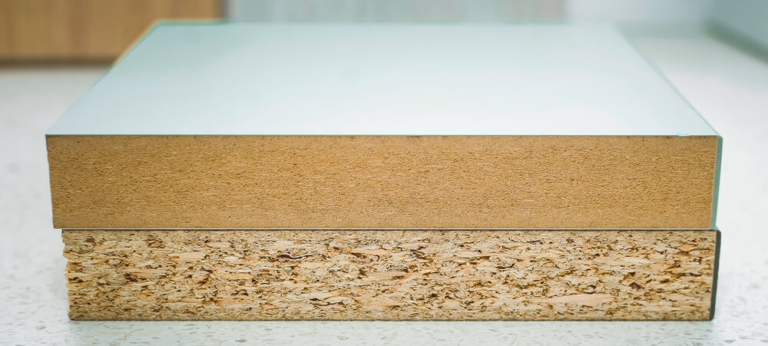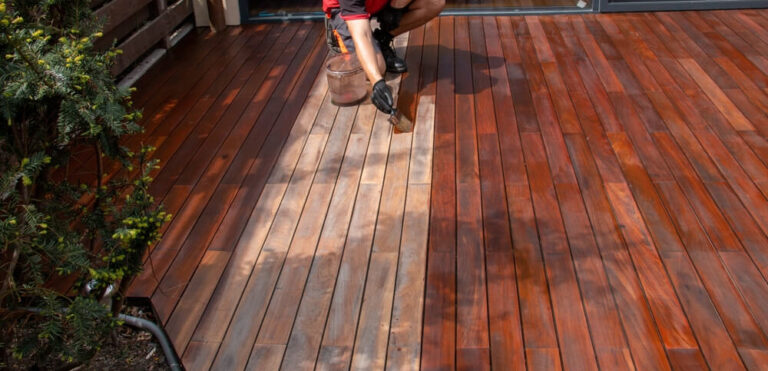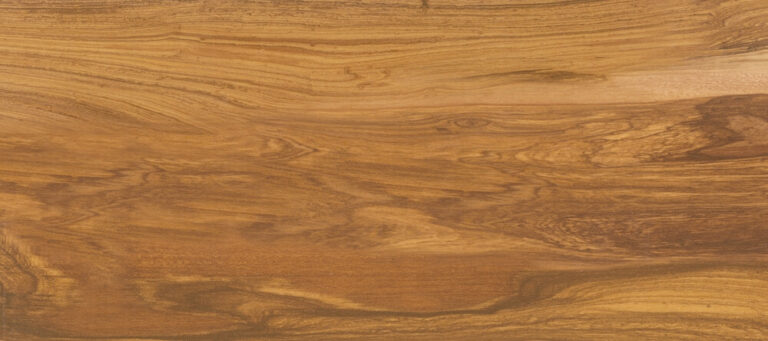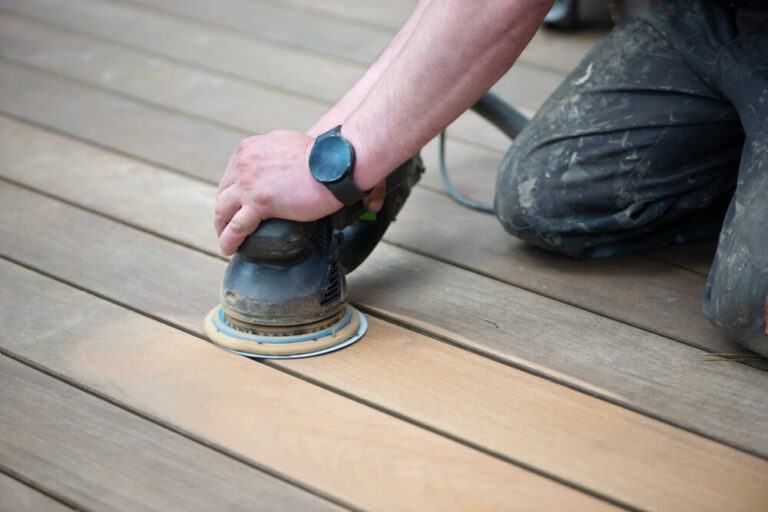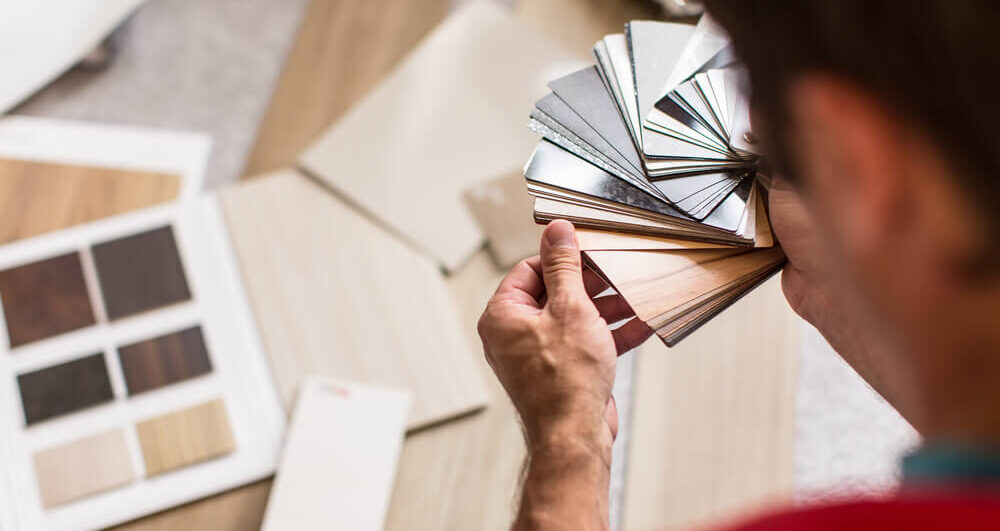
Choosing the right flooring for your home can be a daunting task, especially when faced with two popular options like vinyl and hardwood. Each material offers its own unique set of advantages and disadvantages, making the decision a delicate balance between aesthetics, budget, and lifestyle. People want to know Vinyl flooring vs. hardwood flooring to pick the right choice for them.
Being hardwood flooring experts we will help you delve into the details of vinyl flooring and hardwood, comparing various aspects such as durability, cost, installation, maintenance, and environmental impact to help you make an informed decision. Let’s have a look at the nitty-gritty of these floors:
Vinyl Flooring vs Hardwood: Difference Between Vinyl And Hardwood Floor
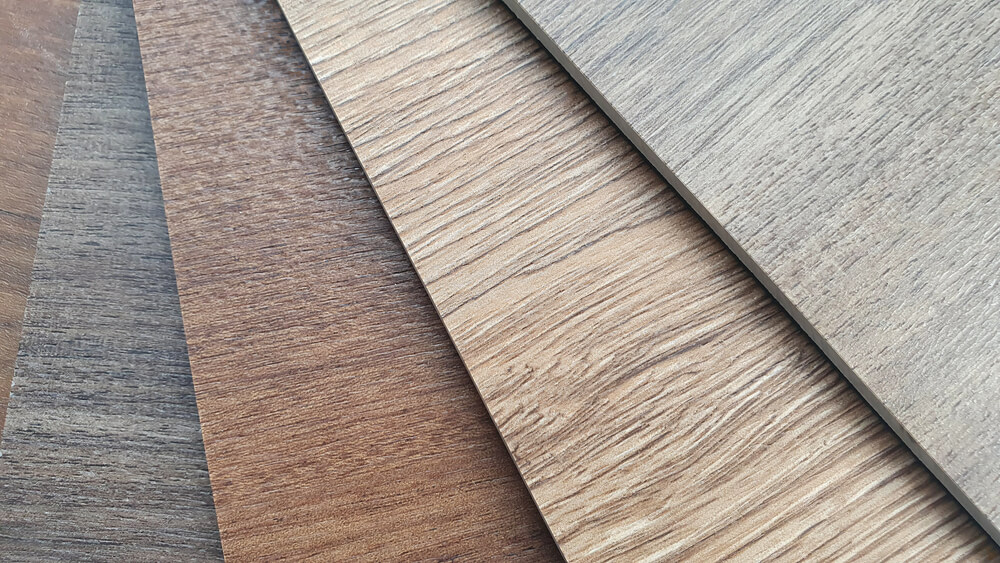
Here are the main difference between vinyl flooring and hardwood floors:
Composition
Vinyl Flooring is made from synthetic materials, primarily polyvinyl chloride (PVC). It may include layers such as a wear layer, a printed or embossed design layer, a core layer, and a backing layer.
Hardwood Flooring is made up of natural wood, typically sourced from various hardwood tree species like oak, maple, or cherry. Hardwood floors can be solid wood or engineered wood (constructed with layers of wood).
Durability
Hardwood flooring is renowned for its durability and timeless appeal. Hardwood can withstand heavy foot traffic and is resistant to scratches and dents. However, it is susceptible to moisture and may warp or expand if exposed to excessive humidity.
Vinyl flooring, on the other hand, is highly durable and resilient. It is resistant to scratches, stains, and moisture, making it an ideal choice for high-traffic areas and spaces prone to spills. Vinyl flooring’s ability to withstand water makes it suitable for bathrooms, kitchens, and basements, where hardwood might be less suitable due to moisture concerns.
Cost
The cost of flooring is a significant factor for many homeowners. Hardwood flooring tends to be more expensive upfront compared to vinyl. The price of hardwood is influenced by factors such as the type of wood, installation method, and finish. Additionally, hardwood floors often require professionals, contributing to overall costs of installation and maintenance.
Vinyl flooring, on the other hand, is a cost-effective option. It is generally more affordable than hardwood, and many homeowners find the installation process to be simpler, potentially reducing labor costs. Additionally, vinyl flooring is available in a wide range of styles that can mimic the appearance of hardwood, providing a cost-effective alternative for those seeking a wood-like aesthetic.
Installation
Installing hardwood flooring can be a complex and time-consuming process, often requiring professional installation. Hardwood planks need to be acclimated to the environment before installation, and the process involves nailing or gluing the planks to the subfloor.
Vinyl flooring offers a simpler installation process, with options for both glue-down and click-lock installations. Some vinyl products are designed with a peel-and-stick backing, making it a feasible DIY project for homeowners. The ease of installation can contribute to cost savings for those who choose to install vinyl flooring themselves.
Maintenance
Maintenance impacts the life cycle of flooring. Hardwood floors require regular maintenance to preserve their beauty. They should be swept or vacuumed regularly to prevent scratches from dirt and debris. Additionally, hardwood floors may need to be refinished periodically to address wear and tear.
Vinyl flooring is relatively low-maintenance. Regular sweeping or mopping is usually sufficient to keep it clean, and it is resistant to stains and scratches. Vinyl’s protective wear layer helps maintain its appearance over time without the need for refinishing. This can be particularly advantageous for homeowners with busy lifestyles.
Environmental Impact
The environmental impact of flooring choices is becoming increasingly important for eco-conscious consumers. Hardwood flooring, when sourced responsibly from sustainable forests, can be a more environmentally friendly option. However, the logging and transportation processes associated with hardwood can contribute to environmental concerns.
Vinyl flooring, while durable and cost-effective, is often made from synthetic materials, including PVC (polyvinyl chloride). The production and disposal of PVC can have negative environmental effects. However, there are eco-friendly vinyl options available, such as those made from recycled materials or using alternative materials like linseed oil.
Aesthetic Option
Vinyl Flooring is versatile in design, offering a wide range of styles, colors, and patterns. It can mimic the look of hardwood, tile, or stone.
Hardwood Flooring has natural beauty and warmth. Variations in wood species, grain patterns, and finishes provide a classic and timeless aesthetic.
Customization
Vinyl flooring provides a high level of customization with a vast array of design options. It comes in various patterns, colors, and styles, including those that mimic the look of natural wood, stone, or tile.
Some vinyl products feature embossed textures that replicate the feel of natural materials, adding to the overall customization and authenticity. It is relatively easy to cut and shape, allowing for intricate designs and patterns during installation.
Hardwood flooring offers a unique, natural appearance with inherent variations in wood grain, color, and character. Each plank can have distinct features that contribute to a customized look. Homeowners can further customize the appearance of hardwood through staining and finishing options. Different stains and finishes can enhance or alter the wood’s color and luster.
Repair
Vinyl planks are often designed to be individually replaceable. If a specific area is damaged, it’s possible to remove and replace only the affected planks, making repairs more targeted and cost-effective. Small damages, such as scratches, can sometimes be repaired with vinyl patch kits, offering a convenient solution.
One of the advantages of hardwood is the ability to sand and refinish the hardwood surface. This process can address scratches, dents, and other surface imperfections, effectively restoring the floor’s appearance.
In cases of severe damage or stains, individual hardwood boards can be replaced. However, this process may require professional assistance and may not be as straightforward as vinyl plank replacement.
Moisture Resistance
Vinyl is resistant to moisture, making it suitable for areas prone to spills, such as kitchens and bathrooms. Waterproof vinyl options are also available, offering additional protection against water damage. It is often recommended for damp areas like basements, where moisture levels can be higher compared to other areas of the home.
Hardwood flooring is sensitive to moisture and can be damaged by water exposure. Excessive humidity, spills, or leaks can lead to warping, swelling, and potential mold growth.
Preventive Measures: To mitigate moisture-related issues, it’s crucial to maintain a stable indoor environment, control humidity levels, and promptly clean up spills on hardwood floors.
Pros & Cons Of Hardwood Flooring
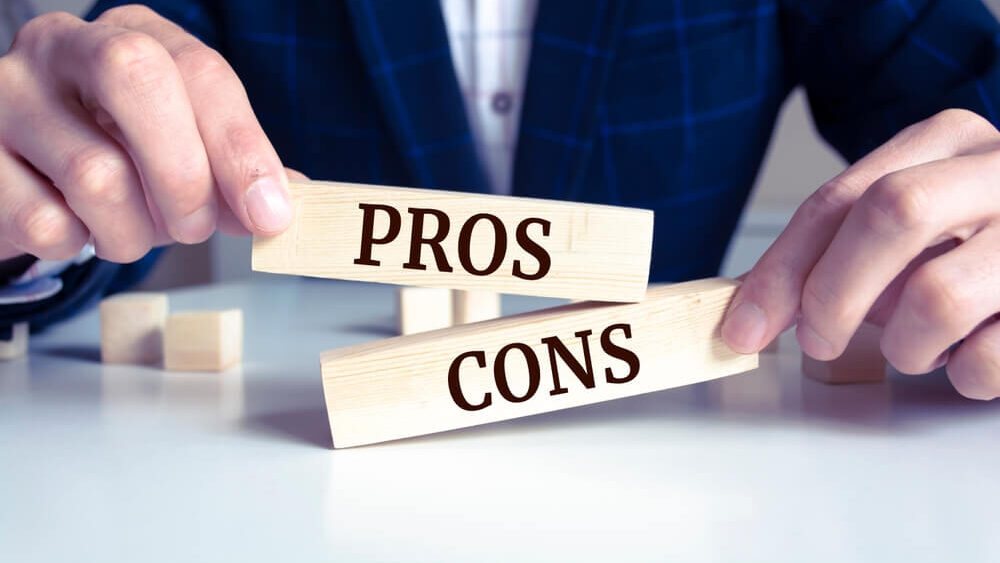
Given below are some of the drawbacks and positive points of vinyl plank flooring and hardwood floors:
Pros Of Vinyl Floors
- Vinyl flooring is generally more budget-friendly compared to hardwood, making it a cost-effective option for many homeowners.
- Vinyl is highly durable and resistant to scratches, stains, and dents. It can withstand high-traffic areas and is suitable for spaces prone to spills.
- Vinyl is inherently resistant to moisture, making it suitable for areas such as kitchens, bathrooms, and basements.
- It requires minimal maintenance. Regular sweeping or mopping is usually sufficient to keep it clean, and it doesn’t require refinishing.
- Vinyl comes in a wide variety of styles, colors, and patterns. It can mimic the look of natural materials like wood, stone, or tile.
- Vinyl tends to be softer and warmer underfoot compared to hardwood, making it more comfortable for walking.
- Many vinyl products are designed for easy installation, including options for DIY projects, potentially reducing installation costs.
Cons Of Vinyl Floors
- Vinyl is made from synthetic materials, including PVC, which may have environmental concerns. However, eco-friendly options are available.
- While vinyl can mimic the appearance of natural materials, some homeowners prefer the authentic look and feel of real wood.
- Unlike hardwood, vinyl cannot be refinished. Damaged areas may need to be replaced rather than restored.
- While vinyl is generally durable, it can be susceptible to damage from sharp objects or heavy furniture.
Pros Of Hardwood Flooring
- Hardwood floors offer a classic and timeless aesthetic that adds warmth and character to a space. The natural variations in wood grain contribute to a unique look.
- Well-maintained hardwood floors can last for decades, and they often add to the resale value of a home.
- Hardwood floors can be sanded and refinished to address wear and tear, scratches, or changes in style. This can extend the lifespan of the flooring.
- When sourced from responsibly managed forests, hardwood flooring can be an environmentally sustainable choice.
- Hardwood flooring is often considered a premium feature that can enhance the overall value and appeal of a home.
Cons Of Hardwood Flooring
- Hardwood flooring is generally more expensive upfront compared to vinyl. The type of wood, finish, and installation method can significantly impact the cost.
- Hardwood is sensitive to moisture, which can lead to warping, swelling, and potential mold growth. It may not be suitable for areas with high humidity or frequent spills.
- Hardwood floors require regular maintenance, including sweeping or vacuuming, and periodic refinishing to address wear and tear.
- While durable, hardwood is susceptible to scratches, especially in high-traffic areas. Area rugs or furniture pads may be necessary to protect the surface.
FAQs
Which Is Better Vinyl Flooring Or Hardwood?
Vinyl flooring is better for budget-conscious buyers seeking durability, moisture resistance, and versatile designs. Hardwood offers timeless aesthetics but at a higher cost, with susceptibility to scratches and moisture.
What Is A Negative Of Vinyl Flooring?
A negative aspect of vinyl flooring is its environmental impact, particularly with traditional vinyl made from PVC. However, eco-friendly options, using recycled materials or alternative sources, are available to mitigate this concern.
What Is Better Vinyl Or Wood?
Vinyl is better for affordability, durability, and moisture resistance. Wood, though pricier, offers timeless beauty, the ability to be refinished, and a natural feel. The choice depends on priorities and budget.
What Lasts Longer Wood Or Vinyl Flooring?
Hardwood flooring generally lasts longer than vinyl. With proper care and refinishing, hardwood can endure for decades. Vinyl, while durable, may require replacement after a certain period, especially in high-traffic areas.
What To Avoid With Vinyl Floor?
To maintain vinyl flooring, avoid using abrasive cleaners, excessive water, or heavy-duty vacuum brushes. Steer clear of dragging heavy furniture without protective pads, and promptly clean up spills to prevent potential damage.
Which Is Cheaper Luxury Vinyl Or Hardwood?
Luxury vinyl is cheaper than hardwood. While both offer durability and aesthetic appeal, luxury vinyl’s cost-effectiveness, easy installation, and versatility make it a more budget-friendly flooring option for many homeowners.
Which Is Better Luxury Vinyl Plank Or Engineered Hardwood?
Luxury vinyl plank is often considered better for its affordability, water resistance, and low maintenance. Engineered hardwood offers a natural look but at a higher cost and with more susceptibility to moisture.
Is Luxury Plank Vinyl Better Than Wood?
Luxury plank vinyl is better than wood in terms of affordability, moisture resistance, and low maintenance. However, wood is preferred for its timeless aesthetic, durability, and the ability to be refinished, despite the higher initial cost.
Conclusion
Choosing between vinyl flooring and hardwood involves considering various factors, including your budget, lifestyle, aesthetic preferences, and environmental concerns. Hardwood offers timeless elegance and durability but comes at a higher cost and requires more maintenance. Vinyl flooring is a cost-effective, durable, and low-maintenance alternative with a wide range of design options. Ultimately, the best choice depends on your priorities and the specific needs of your home.

